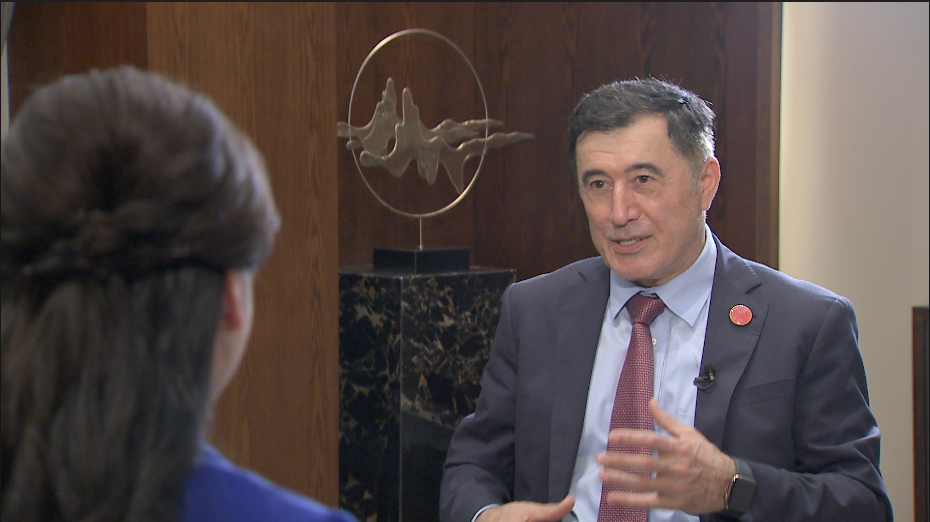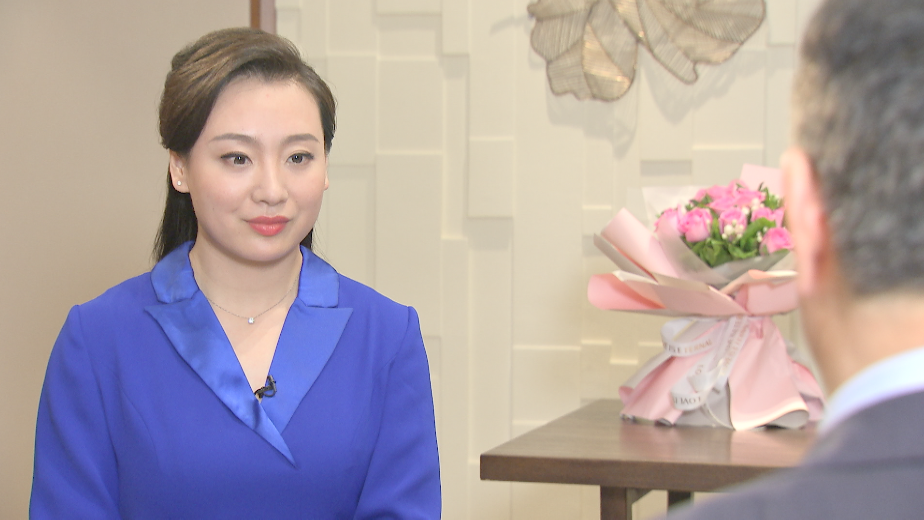03:03

Supporting multilateralism and globalization is the only way forward to face common challenges such as the pandemic which has not only transcended the national boundaries but created devastating consequences in whole world, Vladimir Norov, Secretary-General of Shanghai Cooperation Organization (SCO) told CGTN in an exclusive interview.
The organizations in Asia can exchange information, expertise and experience and can promote common solutions strengthening the multilateralism, Norov said.
There is a need for re-dedicating ourselves to the ideas of multilateralism and multipolar world order based on universally recognized principles of international law, equal and indivisible security, good neighborliness, rejection of confrontation and conflicts, and strengthening of global and regional security and stability, he said.
The following excerpts from the interview have been edited for clarity and brevity.
CGTN: Intensified competitions, difficulties in global cooperation, and the rise of unilateralism and protectionism, have become more prominent after the pandemic. How significant is Asian regional cooperation in the post-pandemic era?
Norov: It cannot be denied that the world is seeing intensified competitions, rise in the sentiments of unilateralism and protectionism. Even against the backdrop of global challenges and threats, Asia is demonstrating confident and robust economic growth, the desire for joint sustainable and inclusive development. Given the fact that the center of the global economy and the global distribution of power is now shifting from the West to the East.
Asian regional organizations have a key role to play at this turning point, by joining efforts, actively participating in the reform of global governance, as well as in the processes of changing the goals and objectives of global institutions.
The IMF has projected very high economic growth rate for the Asian economies this year including for the countries like China and India which will be instrumental in contributing to the recovery from the negative socio-economic consequences of the pandemic.
The initial consultations between the respective health departments of SCO countries were very helpful to coordinate a joint response. It is no secret that many Asian countries have been able to control and fight pandemic more effectively than many of the western nations.

CGTN's Su Yuting interviewing Vladimir Norov during the Boao Forum for Asia. /CGTN
CGTN's Su Yuting interviewing Vladimir Norov during the Boao Forum for Asia. /CGTN
CGTN: What areas do you think the Asian countries will jointly work on to promote multilateralism and globalization?
The COVID-19 pandemic and its devastating socio-economic consequences tested the resilience of global governance and international institutions, and it has accelerated recognition of the role of health systems while highlighting problems like inequalities in access to healthcare and infrastructure across regions and countries. So cooperation in the area of healthcare, epidemiological research, traditional medicine is a part of the active agenda for cooperation for SCO.
Many of the leaders of the member states have expressed sincere commitment to fight the common problems like poverty and inequality, which constitutes a part of the Sustainable Development Goals of the United Nations. The organizations in Asia can exchange information, expertise and experience and can promote common solutions strengthening the multilateralism.
Another area of our joint effort is building connectivity and logistics hub including through railroad and roadways. The economic development led by digital economy and e-commerce industries are already a successful experience for China and holds much potential for all the countries in the region to be adopted as a model.
CGTN: "A World in Change" has been a major focus of this year's Boao Forum, how to improve and rebuild the global governance system in such a changing world?
Norov: Global threats are becoming more interconnected, while our responses are more divided. Distrust of government bodies, political structures and international organizations is growing, and nationalist and populist ideas based on demonization and division are becoming more popular. This portends a great danger, given the current problems that need to be addressed together.
As for improving and rebuilding the global governance system in a dynamic world, it is important to rebuild trust and adopt the principles enshrined in the "Shanghai Spirit" like mutual trust, mutual benefit, equality, mutual consultations, respect for cultural diversity and joint development.
Unfortunately with the politicization of various organizations in recent times, especially in the time of a pandemic, we have seen the degradation of all three factors. All countries and organizations must come together to build on these ideas constructively to re-energize the system of international cooperation which is based on the ideas of fairness, mutual respect, global solidarity.

